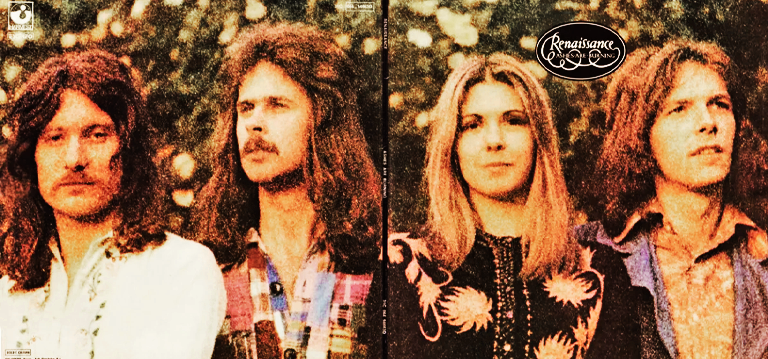Renaissance are one of those bands that always seemed to be around and releasing albums, but I was alone in collecting their records at school and the only prominence they achieved was with ‘Northern Lights’. I loved the feel of their music and they seemed quite grown up to teenage Johnny. I played them as relief from all the guitar solos and rock n roll intensity. Because they weren’t your typical raucous rock and roll outfit, this lot. They were more about crafting intricate soundscapes, weaving together classical influences with a distinctly progressive sensibility. Think of them as the slightly more refined, perhaps even slightly more melancholic, cousins of some of their contemporaries.
Their story has a few twists and turns. It all began, rather interestingly, from the ashes of another band – none other than the original lineup of the Yardbirds. After that iconic group fractured, Keith Relf and Jim McCarty, two of its key members, decided to embark on a new musical direction. This wasn't going to be blues-infused rock; they had something altogether more delicate and nuanced in mind.
The initial incarnation of Renaissance, featuring Relf on vocals and acoustic guitar and McCarty on acoustic guitar and vocals, along with other musicians like Jane Relf (Keith's sister) and John Hawken, leaned towards a folk-rock sound with classical undertones. Their excellent self-titled debut album in 1969 offered a glimpse of this emerging style, a blend of acoustic textures and burgeoning progressive ideas. It was probably the closest to a classical album I had.
However, this lineup proved to be relatively short-lived. By the early 1970s, both Relf and McCarty had moved on to other projects. The name Renaissance was resurrected by the band's manager, Miles Copeland III (brother of Stewart of The Police fame). He brought together a new group of musicians, and this is where the sound that most people associate with Renaissance truly began to take shape.
Enter Annie Haslam. Her soaring, crystalline vocals became the defining characteristic of the band. With a range and purity that often drew comparisons to classical singers, Haslam's voice was the instrument around which Renaissance built their majestic sound. Alongside her were John Tout on keyboards, whose classical training was evident in the band's intricate arrangements, Michael Dunford on acoustic guitar, providing the melodic framework, Jon Camp on bass and vocals, and Terry Sullivan on drums, adding the rhythmic complexity.
This lineup, particularly throughout the 1970s, produced the albums that are now considered their classics. "Prologue," "Ashes Are Burning," "Turn of the Cards," and "Scheherazade and Other Stories" showcased their unique blend of progressive rock, folk melodies, and classical structures. Tracks like "Northern Lights" (which was their only UK Top 10 hit, a bit of an anomaly in their generally more album-oriented approach), "Carpet of the Sun," and the epics "Mother Russia” and “Song of Scheherazade" with its orchestral passages, became staples of their repertoire. This was A Level stuff.
Their music was characterized by its beauty, its complexity, and its often melancholic atmosphere. John Tout's piano and keyboard work provided rich harmonic textures, while Michael Dunford's songwriting, often in collaboration with lyricist Betty Thatcher, explored themes of nature, mythology, and introspection.
While they never quite achieved the mainstream success of some of their progressive contemporaries, Renaissance cultivated a dedicated and appreciative fan base who were drawn to their sophisticated and emotionally resonant music. They toured extensively, showcasing their intricate arrangements and Annie Haslam's captivating stage presence. A Song For All Seasons in 1978 got to #35 was their most popular in the UK, but they had 9 charting albums in America, Novella in 1977 doing best making #46. At their peak they could sell out Carnegie Hall.
Like many bands of their era, Renaissance went through various lineup changes and periods of inactivity in later years. However, the core of their sound, that unique blend of classical elegance and progressive rock ambition, still resonates. Confusingly, Jane Relf’s band was called Illusion, as was the second Renaissance album she recorded. They released two rather far out records. She also recorded music for adverts including "The Fishermen" for Findus Frozen Foods. Keith Relf died after accidentally being electrocuted aged 33. A sad end.
Sidebar
Renaissance - a unique blend of prog rock, folk, and classical...



